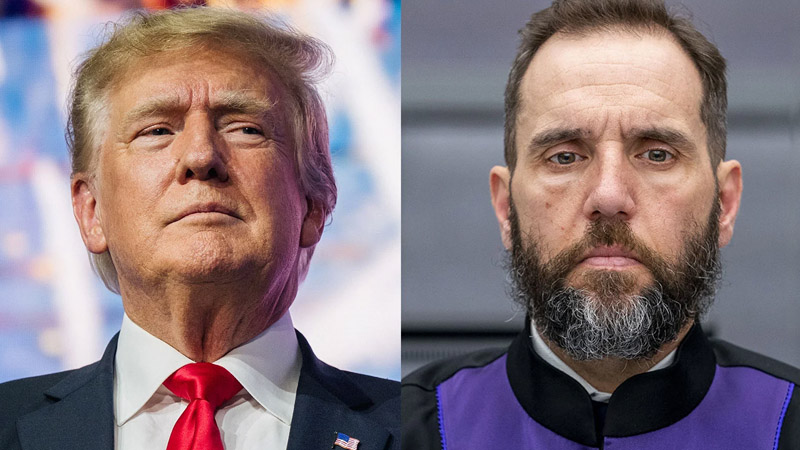In a Monday column for The Atlantic, Princeton history professor Sean Wilentz delved into how special counsel Jack Smith’s recent legal filing dismantles the argument for Donald Trump’s presidential immunity. Wilentz argues that the massive document submitted in Trump’s immunity case not only highlights Trump’s attempts to overturn the 2020 election but also skillfully leverages the Supreme Court’s own language to do so.
According to Wilentz, the filing “both fleshes out and sharpens the evidence of Donald Trump’s sprawling criminal conspiracy to overturn the 2020 election.” He explains that Smith’s approach methodically challenges the former president’s claim to immunity by building a case that connects Trump’s activities, culminating in the events of January 6, to a larger, unlawful scheme.
Wilentz highlights that the document, filed last week to the D.C. District Court, is particularly effective in how it references the Supreme Court’s own majority opinions. “By skillfully quoting from or alluding to language in the Court majority’s own opinion,” Wilentz writes, Smith’s filing effectively dismantles “the notion that Trump’s activities, culminating on January 6, deserve immunity.”
What stands out, according to the history professor, is Smith’s tactical restraint. Rather than directly confronting the conservative majority of the Supreme Court, the filing subtly weaves the Court’s past rulings into its arguments. “Although the filing never challenges the conservative majority directly,” Wilentz notes, “it makes a case, incontrovertible in its logic and factual detail, that the core of Trump’s subversion involved no official actions at all.”
The history professor writes:
[The filing] persuasively argues, with fact after fact, that Trump was the head of an entirely private criminal plot as a candidate to overthrow the election, hatched months before the election itself. In remounting his case, Smith has taken the opportunity to release previously unknown details, some of which he says he doesn’t even plan to present at trial, that underscores the depravity as well as the extent of Trump’s criminal actions.
This tactic, Wilentz contends, exposes the heart of Trump’s strategy as being outside the bounds of legitimate presidential conduct. By illustrating that Trump’s actions weren’t part of any official duties, the special counsel’s filing nullifies the claim that these activities should be protected under presidential immunity.
The professor concludes by pointing out that Smith’s filing represents a significant shift in the legal landscape for Trump. By directly linking Trump’s conduct to criminal intent, while simultaneously aligning its arguments with the Supreme Court’s own reasoning, the document builds a compelling narrative against immunity.
Wilentz’s analysis suggests that, as the case progresses, Trump may find himself increasingly cornered. With Smith’s comprehensive and meticulously crafted filing, the former president’s defense based on immunity looks increasingly fragile. As the legal battle unfolds, this document could prove pivotal in reshaping the conversation around Trump’s culpability and the limits of presidential power.

